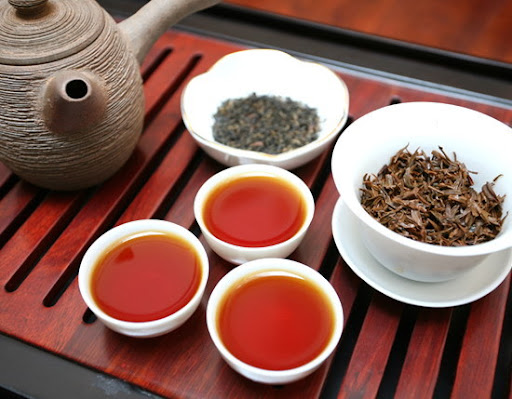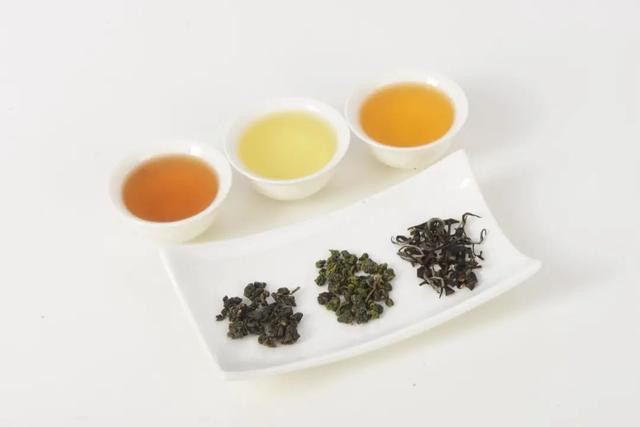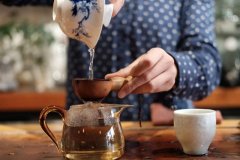Can pregnant women drink tea? What kind of tea would you like? What kind of scented tea can you drink the ten kinds of tea that pregnant women can't drink?
Is it safe to drink tea during pregnancy?
From avid tea drinkers to occasional tea drinkers, many women find themselves asking whether it is safe to drink tea during pregnancy because of the caffeine content in the tea. In short, the answer is yes, but in moderation. This article explores what research has been done on this topic and what suggestions have been made by organizations of medical professionals on this topic.
Caffeine and pregnancy:
Black, green, oolong and white teas all contain natural caffeine. Caffeine, like alcohol, can be passed directly from the mother's body to the fetus through the placenta, and large amounts of caffeine increase the risk of miscarriage, stillbirth and low birth weight.
Although there is not much research on the relationship between tea and pregnancy, several studies over the past 20 years have focused on the effects of caffeinated beverages during pregnancy. Even when controlling factors such as morning sickness (which is thought to keep healthy women away from caffeine), smoking, drinking and other factors, the study found that consuming large amounts of caffeine doubled the risk of miscarriage.
Because of these risks, many doctors advise pregnant women to keep their caffeine intake at a low level. According to the American pregnancy Association, one to three cups of caffeinated tea may still be safe, but the American Psychological Association advises pregnant women to consult a midwife, doctor or other medical professional to discuss what is best for them.

Herbal tea and pregnancy:
Herbal tea contains all the hot water brewed from any plant, so it has incredible diversity. The topics of herbal tea and pregnancy are too broad to conduct a comprehensive study in an article. It should be noted, however, that many herbal teas, especially those sold as medicinal or health teas, are powerful medicines and can have dangerous side effects. It is best to assume that herbal tea is not necessarily safe during pregnancy and consult a medical professional before drinking herbal tea during pregnancy.
According to a 2002 outline of herbal medicines, "few conventional drugs are determined to be safe to take during pregnancy, and it is generally believed that no drugs should be taken unless the benefits to the mother outweigh any possible risks to the fetus. The authors of the 2005 herbal safety volume also pointed out that high doses of herbs, such as those associated with herbal essential oils, should be avoided during pregnancy and lactation. The authors compiled a list of herbs that should be avoided during pregnancy, but it does not contain any herbs commonly used as beverages. However, Barnes and Philipson listed ingredients that should be used carefully during pregnancy in their 2002 book, and there are some common ingredients in herbal tea. including apricots, calendula, chamomile, eucalyptus, ginseng, hops, nettles, mint and many other ingredients. "although there is no recent clinical or experimental data, some of the listed herbs are considered abortion drugs or affect the menstrual cycle," the authors commented. "

Red raspberry leaves may help relieve nausea, strengthen the uterus and provide the necessary nutrients. It is one of the most popular herbs recommended by midwives. Unfortunately, research on red raspberry leaves is uncertain-it is likely to be safe to use raspberry leaves during pregnancy, but it may not have much benefit.
Ginger is mainly used to relieve morning sickness. A 2003 study showed that eating ginger during pregnancy was safe, but its beneficial effects were mild on the other hand, and a short study of ginger tea reported a significant improvement in nausea among women who drank ginger tea.
In general, due to the lack of scientific and publicly available information, it is best to consult a medical professional before deciding to drink tea, herbs or other health care methods during pregnancy. Tea has some convincing health benefits, but excessive caffeine can cause serious risks during pregnancy, and some types of herbal tea can also have significant negative effects on the fetus.
Important Notice :
前街咖啡 FrontStreet Coffee has moved to new addredd:
FrontStreet Coffee Address: 315,Donghua East Road,GuangZhou
Tel:020 38364473
- Prev

Which country is the country of black tea? What is the efficacy and function of Kenyan black tea?
Hujambo! In Swahili, you will hear Kenyans speak in a warm and soft way. Kenya is the 27th most populous country in the world, has some of the most hospitable people you have ever met, and is the fourth largest tea producer after China, Sri Lanka and India. Tea is very important in this country. As the largest source of foreign exchange earnings for the Kenyan economy, most of them
- Next

The six types of tea are the most suitable for brewing tea. The temperature of tasting tea is better.
The brewing temperature refers to the temperature of the water used to make tea. Brewing temperature and time, tea dosage, water quality and brewing container are one of the key factors for brewing tea. Many websites, tea companies and other sources recommend simple, uniform guidelines for brewing temperature. These guidelines usually boil down to black tea using boiling water (212F or 100C), while green tea uses much lower than the boiling point.
Related
- What is the difference between Indonesian Sumatra Mantinin coffee and gold Mantinin? How to distinguish between real and fake golden Mantelin coffee?
- What does bypass mean in coffee? Why can hand-brewed coffee and water make it better?
- Unexpected! Ruixing Telunsu lattes use a smoothie machine to foam milk?!
- % Arabia's first store in Henan opens into the village?! Netizen: Thought it was P's
- Does an authentic standard mocha coffee recipe use chocolate sauce or powder? Mocha Latte/Dirty Coffee/Salty Mocha Coffee Recipe Share!
- What is the difference between Vietnam egg coffee and Norway egg coffee? Hand-brewed single product coffee filter paper filter cloth filter flat solution!
- What is the difference between sun-cured and honey-treated coffee? What are the differences in the flavor characteristics of sun-honey coffee?
- How to make Italian latte! How much milk does a standard latte use/what should the ratio of coffee to milk be?
- How to make butter American/butter latte/butter Dirty coffee? Is hand-brewed coffee good with butter?
- Is Dirty the cold version of Australian White? What is the difference between dirty coffee/decent coffee and Australian white espresso?

